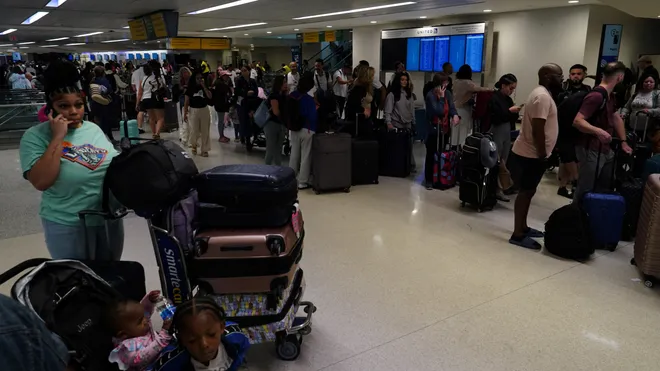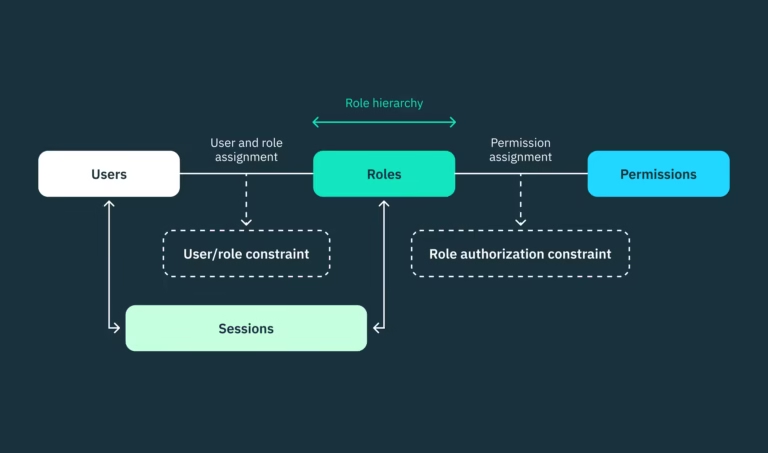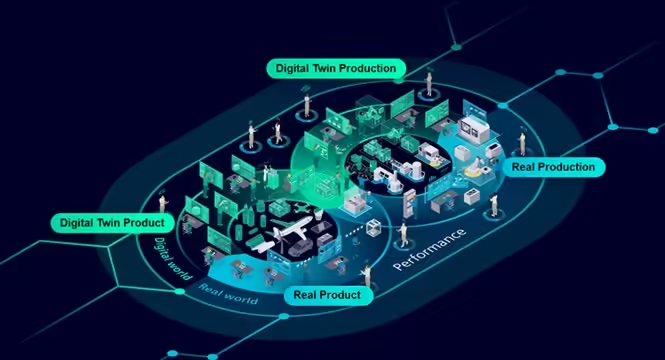
Understanding the Current Aviation Crisis
The aviation industry is currently grappling with a series of unprecedented challenges that have resulted in widespread flight cancellations and disruptions. This turmoil, often referred to as the ‘global tech crisis,’ has been exacerbated by a confluence of factors including staffing shortages, technical failures, and significant regulatory changes.
One of the most immediate and visible impacts has been the rampant cancellation of flights, both domestically and internationally. For instance, us flights have seen a significant number of cancellations due to insufficient crew availability and logistical complications. Similarly, Indian flights have not been immune to these disruptions, facing their own set of challenges amid the broader crisis.
Technical failures have also played a prominent role in this aviation chaos. Major systems used by airlines and airports for scheduling, ticketing, and customer service have experienced outages and slowdowns. Companies like Microsoft and CrowdStrike have been at the forefront of addressing these issues, although their efforts have been met with varying degrees of success. A recent CrowdStrike software update aimed at enhancing cybersecurity measures inadvertently caused system slowdowns, further complicating operations for many airlines.
Moreover, the regulatory landscape has undergone significant transformations, adding another layer of complexity. Changes in aviation rules and safety protocols, often implemented in response to evolving global standards, have required airlines to adapt swiftly. This has sometimes led to operational hiccups and compliance challenges, contributing to the overall disruption.
Amid these multifaceted issues, the term ‘global tech crisis’ aptly encapsulates the current state of the aviation industry. The interplay between technological advancements, cyber threats, and regulatory demands has created a volatile environment where even minor disruptions can cascade into significant operational challenges. As airlines and regulatory bodies strive to navigate this intricate landscape, passengers worldwide continue to bear the brunt of the ongoing aviation crisis.
The Scale of Flight Cancellations
Amid the ongoing global technical crisis, the aviation sector continues to grapple with extensive flight cancellations. Recent statistics from major airlines and aviation authorities paint a troubling picture. For instance, North American carriers such as Delta and United Airlines have reported cancellation rates approaching 20% over the past month. This marks a significant departure from the usual 2-3% observed in preceding years. Similarly, European airlines like Lufthansa and Air France are experiencing unprecedented disruption, with cancellations affecting 15-18% of scheduled flights.
The impact is not uniform across all regions. In North America, airports such as Hartsfield-Jackson Atlanta International and Chicago O’Hare are facing severe operational challenges. These hubs, critical for both domestic and international us flights, have seen a 25% spike in cancellations compared to the same period last year. Meanwhile, in Asia, Indian flights out of major hubs like Indira Gandhi International Airport in Delhi and Chhatrapati Shivaji Maharaj International Airport in Mumbai are also witnessing a surge in cancellations, disrupting travel plans for millions.
Comparing the current situation to previous years reveals the profound depth of the crisis. Historically, external factors like weather conditions and geopolitical tensions have caused sporadic disruptions. However, the present scenario is compounded by a technical crisis involving key software providers. Notably, a recent CrowdStrike software update has led to widespread system failures across airline operations. Furthermore, Microsoft’s cloud-based services experienced a financial shut down last quarter, exacerbating the situation. This unprecedented convergence of technical and operational challenges has placed immense strain on global aviation networks.
Particularly affected routes include transatlantic flights between North America and Europe, and intra-Asian routes connecting major economic centers such as Tokyo, Singapore, and Hong Kong. The ripple effects of these cancellations are vast, impacting not only passengers but also cargo transport and international trade. As airlines and airports scramble to mitigate the fallout, the need for robust, resilient technical infrastructure has never been more apparent.
Impact on Passengers
The continuous wave of flight cancellations has created a myriad of challenges for passengers, whether they are flying domestically within the US or internationally, including Indian flights. The unpredictability of these cancellations has led to significant travel disruptions, resulting in long delays and immense difficulty in rebooking flights. The impact on passengers is profound, extending beyond mere inconvenience to substantial financial and emotional tolls.
One of the most immediate challenges travelers face is the extended wait times at airports. Passengers often find themselves stranded for hours or even days as they scramble to find alternative flights. Rebooking has become a daunting task due to the high volume of affected individuals and limited availability of seats on subsequent flights. This situation is further exacerbated by the technical crisis, including the recent Crowdstrike software update, which has added to the chaos by disrupting airline operations and complicating the rebooking process.

Financial losses are another significant concern for passengers. Many travelers have incurred additional costs for accommodations, meals, and transportation while they wait for their new flights. Refunds and compensation from airlines are often delayed or insufficient, adding to the frustration. Travelers with non-refundable bookings or those who need to make last-minute changes face even greater financial burdens.
Personal stories from affected passengers highlight the human element of this crisis. For instance, Sarah, a business traveler from California, shared her experience of missing an important meeting due to a flight cancellation. Despite booking with a reputed airline, she faced a 24-hour delay and had to bear the cost of an overnight stay. Similarly, Rahul, a student from India, experienced a 48-hour delay in his journey back home, leading to additional expenses and missed academic commitments.
These personal accounts underscore the far-reaching impact of the ongoing flight cancellations. As the aviation industry grapples with technical issues, such as those related to Microsoft’s system integrations, and financial shutdowns, passengers continue to bear the brunt of these disruptions. The need for efficient resolution and better communication from airlines is more critical than ever to alleviate the hardships faced by travelers worldwide.
Technical Failures: The Heart of the Crisis
The aviation sector is grappling with significant disruptions, primarily driven by technical failures. Aging infrastructure, cybersecurity threats, and recent system outages have collectively contributed to the ongoing chaos. The intricacies of these issues are multifaceted, demanding a closer examination to understand their roots and potential solutions.
Aging infrastructure is a critical concern. Many airlines and airports operate on outdated systems that struggle to cope with the demands of modern air travel. These legacy systems are prone to failures and are often incompatible with newer technologies, leading to frequent breakdowns and operational inefficiencies. For instance, the outdated scheduling software of several US flights has been cited as a primary factor in recent delays and cancellations.
Cybersecurity threats further exacerbate the situation. The aviation industry has become a lucrative target for cyberattacks, with hackers aiming to exploit vulnerabilities in flight management systems, reservation platforms, and operational networks. A notable event was the financial shutdown caused by a ransomware attack on a major airline, highlighting the sector’s vulnerability to cyber threats. Experts emphasize the need for robust cybersecurity measures to safeguard critical systems against such intrusions.
Recent system outages have also played a significant role in the current crisis. One such instance involved a software update by CrowdStrike that inadvertently led to widespread disruptions. Similarly, a technical glitch in Microsoft’s cloud services resulted in substantial delays for both US and Indian flights. These incidents underscore the importance of reliable software and the potential repercussions of technical failures on a global scale.
Industry experts suggest a multifaceted approach to address these challenges. Upgrading aging infrastructure, investing in advanced cybersecurity protocols, and ensuring thorough testing of software updates are crucial steps. Collaboration between airlines, technology providers, and regulatory bodies is essential to develop a resilient framework capable of withstanding future technical crises.
In conclusion, addressing the technical failures at the heart of the aviation crisis requires a concerted effort. By modernizing infrastructure, enhancing cybersecurity, and ensuring robust systems, the aviation sector can mitigate disruptions and ensure smoother operations for the future.
Staffing Shortages and Labor Disputes
The aviation industry is currently grappling with significant staffing shortages and labor disputes, which are exacerbating the ongoing crisis. The shortage of personnel, including pilots, air traffic controllers, and ground staff, has been a critical factor in the disruptions affecting both US flights and Indian flights. Several factors contribute to these shortages, including a rapid increase in air travel demand post-pandemic, early retirements, and a slower-than-expected return of laid-off workers.
Pilots, in particular, are in short supply due to an aging workforce and stringent qualification requirements. Many seasoned pilots opted for early retirement during the pandemic, and the training pipeline for new pilots cannot keep pace with the burgeoning demand. Similarly, air traffic controllers are facing unprecedented workloads as staffing levels remain below pre-pandemic numbers. The training and certification process for these roles is time-consuming, further delaying the replenishment of the workforce.
Ground staff and other airport personnel are also in short supply, leading to operational inefficiencies and delays. These shortages are compounded by ongoing labor disputes and strikes. Unions representing various segments of the workforce are negotiating for better wages, working conditions, and benefits, which have become more pronounced in the wake of the pandemic. Strikes and labor actions have led to cancellations and delays, further straining the already fragile state of flight operations.
Negotiations between airlines and unions are ongoing, but resolutions are slow to materialize. The impact of these staffing shortages is profound, causing a ripple effect across the entire aviation industry. Flight schedules are being disrupted, leading to cancellations and delays that inconvenience passengers and affect airline revenues. As airlines struggle to maintain regular operations, the broader implications for the global travel industry become increasingly apparent.
Regulatory and Policy Challenges
In the midst of the ongoing aviation crisis, regulatory and policy changes play a significant role in shaping the landscape of global travel. Recent modifications in aviation regulations, coupled with varying travel restrictions and updated safety protocols, have created a complex environment for airlines to navigate. These changes have had a profound impact on airline operations, leading to an increase in flight cancellations and operational disruptions.
One of the primary regulatory shifts has been the tightening of safety protocols. In response to global health concerns, aviation authorities have mandated rigorous sanitization procedures, social distancing measures, and health screenings for passengers and crew members. While these protocols are essential for ensuring passenger safety, they have also introduced delays and logistical challenges for airlines. The additional time required for thorough cleaning and health checks often results in longer turnaround times, reducing the number of flights an airline can operate in a given day.
Travel restrictions imposed by various countries add another layer of complexity. As nations grapple with fluctuating infection rates, travel bans and quarantine requirements are frequently updated. This inconsistency makes it challenging for airlines to maintain stable schedules, as flights may be suddenly canceled or rerouted to comply with new regulations. For instance, flights from India to the United States have faced numerous disruptions due to changing entry requirements and quarantine mandates.
Moreover, financial shutdowns and technical crises, such as the recent CrowdStrike software update issues and the Microsoft systems failure, have exacerbated the situation. Airlines relying on these technologies for operations management and cybersecurity have encountered significant hurdles, leading to further flight cancellations and operational inefficiencies.
Overall, the confluence of stringent safety protocols, unpredictable travel restrictions, and technical challenges has created a turbulent environment for the aviation industry. Airlines must continuously adapt to regulatory changes to mitigate the impact on their operations and minimize flight cancellations.
Economic Consequences for the Aviation Industry
The aviation industry is facing unprecedented financial turmoil due to the ongoing crises affecting both domestic and international flights. The confluence of multiple issues, including technical crises involving major software like Microsoft’s and CrowdStrike’s recent updates, has exacerbated an already fragile situation. Consequently, airlines are experiencing significant revenue losses and an increase in operational costs.
Revenue losses have been staggering, with major airlines reporting declines in ticket sales as a direct result of flight cancellations and delays. The situation is particularly dire for smaller airlines, which lack the financial resilience to weather prolonged disruptions. According to industry analysts, many airlines are operating at a loss, with some teetering on the brink of bankruptcy. The impact is equally severe for us flights and indian flights, both of which have seen a dramatic drop in passenger numbers.
Increased operational costs are another significant challenge. Airlines are required to spend more on maintenance and software updates to prevent future disruptions. The recent CrowdStrike software update, while necessary for cybersecurity, has added to the operational burden. Additionally, the costs associated with compensating passengers for canceled flights and delays are mounting, further straining financial resources.
Financial experts predict a grim outlook for the sector if the crises persist. The potential for airline bankruptcies remains high, especially among those with already precarious financial standings. Analysts suggest that unless there is a swift resolution to the technical and operational challenges, the aviation industry could see a wave of consolidations and closures. Moreover, financial shut downs in ancillary sectors such as airport operations and travel agencies could exacerbate the situation, creating a ripple effect throughout the economy.
In light of these challenges, industry leaders are calling for coordinated efforts to address both the immediate and long-term impacts. Strategic investments in technology, better crisis management protocols, and financial support from governments could be crucial in stabilizing the sector. As the situation evolves, the resilience of the aviation industry will be tested, and its capacity to adapt will determine its future trajectory.
Future Outlook: Navigating Through the Turbulence
The aviation industry stands at a critical juncture as it navigates through an unprecedented crisis marked by widespread flight cancellations and a global technical upheaval. Despite these challenges, the sector’s resilience and adaptability offer a hopeful path forward. To recover and stabilize, the industry must embrace technological advancements, implement policy reforms, and adopt strategic changes.
Technological innovation will play a pivotal role in the recovery process. For instance, leveraging advanced data analytics and artificial intelligence can enhance predictive maintenance, reducing the likelihood of technical failures. The integration of more robust software solutions, such as CrowdStrike software updates, can bolster cybersecurity measures, safeguarding against potential threats that could disrupt flight operations. Additionally, investments in cloud technology are crucial for improving the efficiency of airline operations and customer service.
Policy reforms are equally essential in steering the industry towards stability. Governments and regulatory bodies need to collaborate closely with aviation stakeholders to establish clear guidelines that ensure operational safety and reliability. For example, revisiting and updating existing regulations on air traffic management and flight scheduling can mitigate the impact of sudden flight cancellations. Furthermore, financial support packages and incentives can aid airlines in overcoming the economic strain brought about by the crisis.
Strategic changes within airlines themselves are imperative. Diversifying revenue streams by expanding into cargo and logistics services can provide a buffer against the financial shutdown caused by decreased passenger demand. Moreover, fostering strategic partnerships with tech giants like Microsoft can facilitate the adoption of cutting-edge technologies, enhancing operational efficiency and passenger experience.
Ongoing initiatives and investments aimed at revitalizing the aviation sector are already in motion. For example, several airlines are investing in sustainable aviation fuels and electric aircraft to reduce their carbon footprint, aligning with global environmental goals. Collaborative efforts between airlines, tech companies, and regulatory bodies are also underway to develop more resilient and adaptable systems.
In conclusion, while the current crisis presents significant challenges, the aviation industry’s inherent resilience and capacity for innovation provide a solid foundation for recovery. With a strategic focus on technological advancements, policy reforms, and diversified revenue streams, the industry is poised to navigate through the turbulence and emerge stronger than before.








